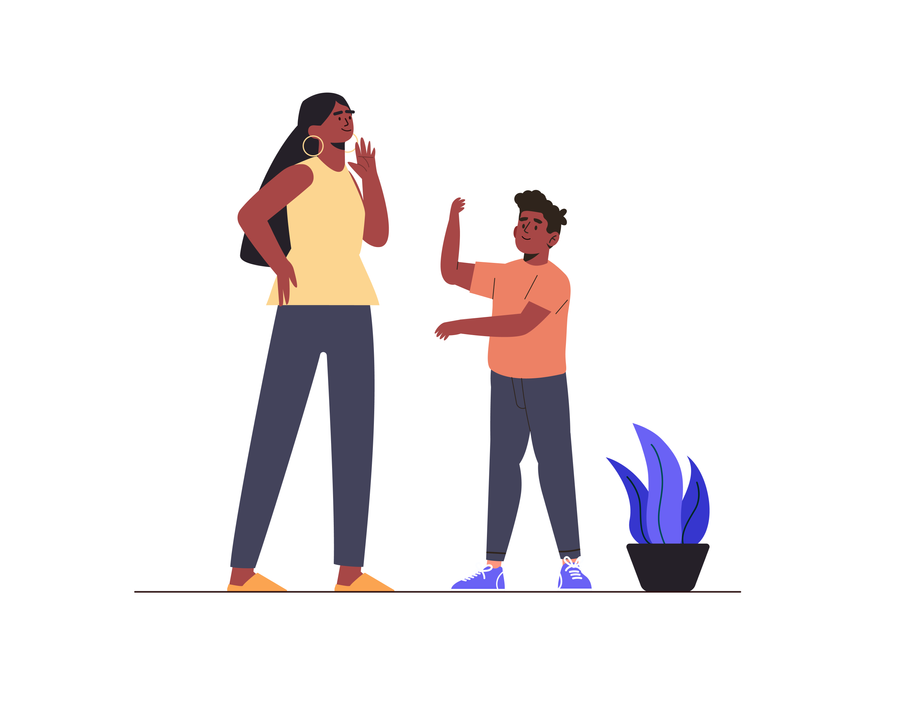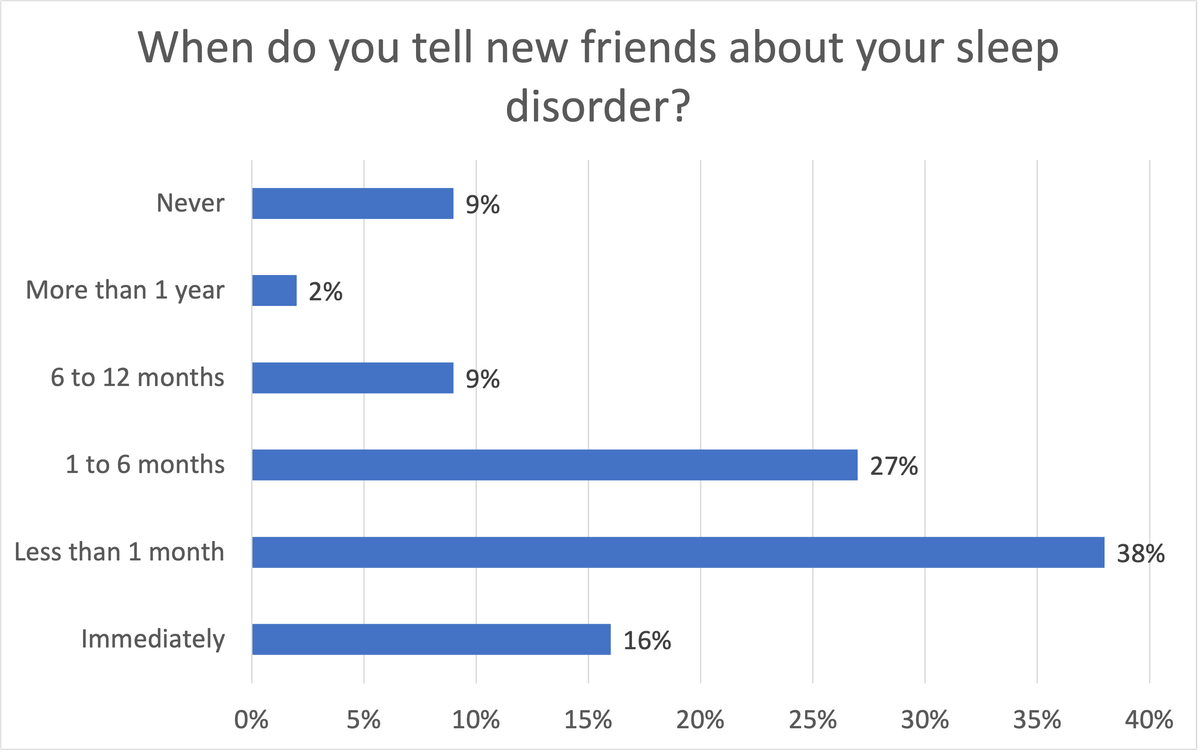How do I talk about my sleep disorder with other people?
~ 3 min read

It can be difficult for your child and your family to decide whether you want to tell others about private health issues.
We don’t typically disclose information about personal health to people, unless they really need to know. Sleep disorders, like narcolepsy and idiopathic hypersomnia, are no different. While some patients with narcolepsy or idiopathic hypersomnia tell close family and friends about their sleep disorder, there is a wide range for how they approach this issue with people they know less well. Some people choose to tell new friends quickly, and some wait a long time to share this personal information.
Strategizing who you disclose information about your sleep disorder to should be a decision driven by how this information can help you feel more confident in who you are. Here are some groups of people who you may want to consider sharing your diagnosis with:
- Close friends
- Classmates
- Teacher(s) at school
- Administrator(s) at school (e.g., principal)
- Coaches/instructors for sports, music etc.
- Supervisor(s) at work or volunteer positions
- Leaders at faith-based organizations (e.g., church, synagogue, mosque)
- Extended family
Sitting down with your family and planning out how you would like to share this information with others will empower you to make active decisions about your sleep disorder. To help start the conversation with whoever you decide to share your diagnosis with, you may want to consider providing them with basic information about your unique sleep disorder, so that they can better understand your experience:
If you have narcolepsy disorder:
- Narcolepsy is a rare sleep disorder, affecting about 1 in 2,000 people.
- Symptoms usually begin just before, or during the teenage years. The most common symptoms are excessive daytime sleepiness, cataplexy, disrupted nighttime sleep, hallucinations when falling asleep or waking up from sleep, and sleep paralysis.
- Narcolepsy symptoms can sometimes be mistaken for depression, a lack of sleep, or even laziness.
- Even though a teen with narcolepsy may have to work harder at maintaining a proper schedule than their classmates, patients with narcolepsy are likely to be just as (if not more!) academically successful as their peers.
If you have idiopathic hypersomnia:
- Idiopathic hypersomnia is an uncommon sleep disorder in which someone is very sleepy during the day and has a lot of difficulty being awakened from their sleep.
- There is not a clear cause for why this individual experiences these symptoms, which often adds to the frustration of the patient and their loved ones.
- Symptoms often develop during the teenage or young adult years. They include taking daytime naps that do not improve the feeling of drowsiness, sleep drunkenness (feeling confused or disoriented when waking up from sleep), and increased amount of time spent sleeping (even up to 18 hours/day).
- Because there is a great deal of overlap between the symptoms of idiopathic hypersomnia and other physical and psychological health issues, an accurate diagnosis can take a long period of time.
- Idiopathic hypersomnia symptoms can sometimes be mistaken for depression, and laziness.
